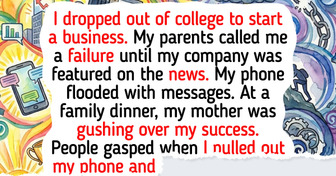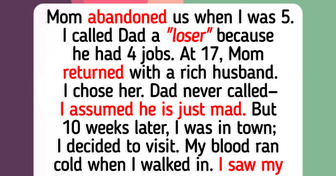13 Companies Who Don’t Just Try to Sell Their Goods but Really Care About Their Customers


Family estrangement has become a prevalent issue in recent years, with 1 in 4 Americans reporting that they have experienced it. This phenomenon is not limited to the United States and has been observed in many countries worldwide. In this article, we will delve into the reasons behind this trend and explore how it can be resolved.
Psychologists propose that one of the main reasons for family estrangement is the development of divergent values between parents and their adult children.
As children grow up, they develop their own unique identities that may not align with their parents’ beliefs and values. This can relate to various aspects of life, like career choices or romantic partners, as well as more complex social issues. Eventually, it can lead to misunderstandings and resentment, especially if both parties do not communicate effectively.

Another factor that contributes to family estrangement is parents’ inability to accept their children’s independence. According to psychologists, some parents find it challenging to let go of the memories of their children as young and dependent on them. Another reason for this may be that parents have a natural inclination to protect and care for their children. Hence, they may struggle to adjust to the new dynamic where their child is more self-reliant and responsible.
Highly critical parents can also be a source of family estrangement. If parents are excessively critical of their children, they may feel unaccepted and like disappointments to their parents. Children want to make their parents proud, but when nothing seems to be enough, they may stop trying to impress them and start doing things for themselves.
Estrangement from parents can be a form of self-protection for adult children who have experienced maltreatment, or rejection. While parents are generally expected to love and respect their children, some fail to do so, leading to conflict and harm to one’s mental health. In such cases, going no contact may be the best way to heal and move forward.
Although conflict is normal in family relationships, ongoing harm to mental health can make it necessary to distance oneself from a parent. If a parent is unwilling or unable to change, estrangement may be the only way to safeguard one’s well-being.
If you are a parent who wants to reconcile with your estranged adult child, you need to engage in thoughtful and attentive conversation and show empathy. According to a recent study, almost 80% of mothers who were distanced from their children blamed someone in their child’s life for turning their child against them.
While this may be the case in some instances, it is crucial to have a conversation with your child to understand their perspective and what drove them away. It would help if you tried to empathize with their experiences and feelings, even if you do not agree with them. This way, you can find a way to reconcile and bring your family back together.











